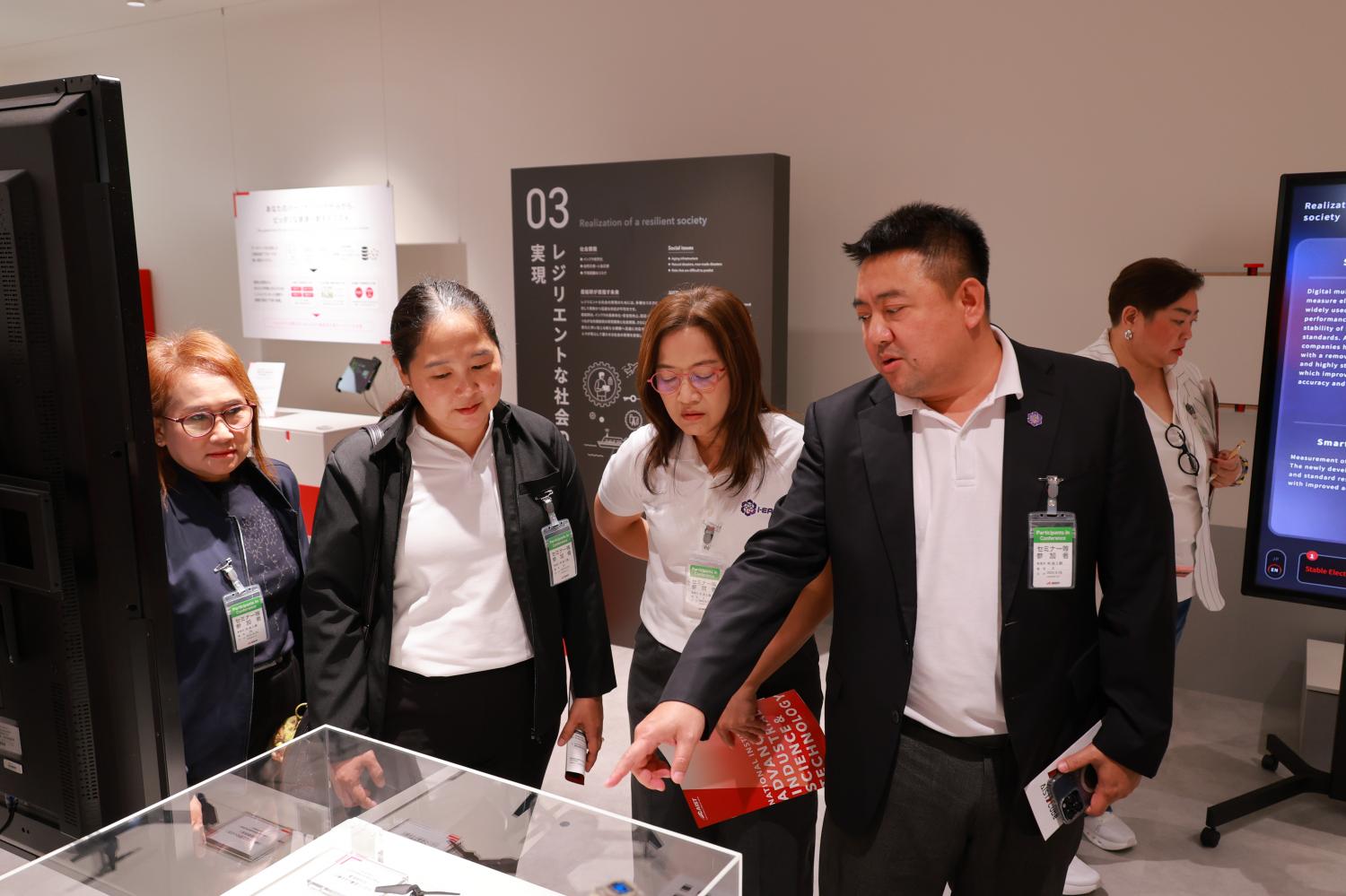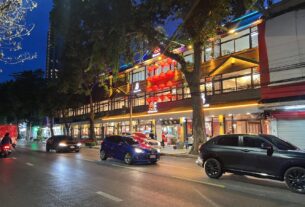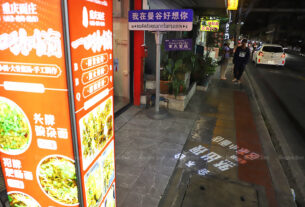The Industrial Estate Authority of Thailand (IEAT) is deepening partnership with Japanese authorities and industry players to accelerate growth in targeted sectors as Thailand steers its economy toward clean energy. The move aims to blend Thai industrial momentum with Japanese expertise in advanced technologies, fostering a more resilient and efficient manufacturing landscape. By combining Siamese manufacturing capacity with high-tech know-how, the collaboration seeks to equip Thai factories with modern tools, upskill workers, and unlock new investment opportunities in sectors pivotal to Thailand’s energy and industrial transition.
Strengthening ties between IEAT and Japanese partners
The IEAT is intensifying cooperation with Japan’s authorities and business community to promote sustainable growth across key industries, aligned with Thailand’s broader shift toward clean energy. This closer collaboration is designed to deliver two core outcomes: robust skills development for factory workers and a deeper integration of cutting-edge technology across Thai manufacturing facilities. In practical terms, this means joint programs that enhance workforce capabilities and accelerate the adoption of Industry 4.0 solutions, including digital automation, data analytics, and smart manufacturing practices. These improvements are viewed as essential for lifting productivity, reducing downtime, and boosting the competitiveness of Thailand’s manufacturing sector in global markets.
The partnership also reflects a strategic plan to channel investment into targeted industries that are central to Thailand’s economic and energy transition. Among these sectors are next-generation vehicles, smart electronics, medical equipment, and renewable energy technologies. By focusing resources and expertise on these areas, the IEAT seeks to create an ecosystems approach: connecting policy incentives, industrial estates, and innovation centers with Japanese technological leadership. A key driver of this framework is the government’s intention to support operators that commit to 100% clean energy, enabling business activities to run on fully renewable power sources. This ambition underscores a broader objective: to align industrial activity with environmental goals while maintaining steady growth and global competitiveness.
Within this framework, the IEAT envisions a strong collaboration with the National Institute of Advanced Industrial Science and Technology (AIST), a major research institution under Japan’s Ministry of Economy, Trade and Industry. The goal is to jointly push forward the energy transition and concurrent industrial development. By pooling resources and expertise, Thailand hopes to accelerate renewable energy deployment and strengthen its industrial base, particularly in regions where Japanese manufacturing plants are concentrated. The vision is not merely to conduct studies; it is to implement concrete projects that can bolster Thai industries while leveraging Japanese know-how and experience in advanced manufacturing and sustainable energy systems.
Historically, AIST has already engaged with Thai researchers through partnerships with two national agencies—the Institute of Scientific and Technological Research and the National Science and Technology Development Agency—on international studies addressing topics of mutual interest. Looking ahead, there is an expressed intention to broaden this academic and technical cooperation, depending on evolving circumstances and needs. AIST’s leadership emphasises that the organization has conducted diverse research programs covering industries, social dynamics, and people, which could be invaluable in shaping policy, workforce training, and technology adoption strategies in Thailand.
AIST’s footprint in Japan comprises a sizable cadre of researchers, currently totaling around 2,200 professionals who operate across 12 cities and regions, including Tokyo, Kansai, Chubu, and Kyushu. Notably, more than seven tenths of AIST’s researchers are based in Tokyo, underscoring the organization’s central role in national and international scientific activity. This densely resourced hub can serve as a bridge to Thai industrial needs, offering access to a broad spectrum of scientific expertise, facilities, and collaborative models that have supported industry and society in Japan.
Earlier collaborations between the IEAT and Japanese companies explored hydrogen fuel feasibility within Thai industrial estates, including Smart Park Industrial Estate in Map Ta Phut, Rayong. These discussions laid the groundwork for a broader clean energy strategy centered on hydrogen and other renewable technologies, with specific attention to creating a robust energy infrastructure capable of supporting both manufacturing operations and mobility technologies. The strategic aim is to create a climate-friendly industrial environment that can help reduce environmental impact while maintaining high levels of productivity and innovation in Thailand’s industrial zones.
Even more critically, the IEAT intends to advance clean energy infrastructure at the Smart Park estate to support a wide array of manufacturing activities and next-generation mobility technologies. By investing in utility-scale energy systems and related infrastructure, the estate would be better positioned to demonstrate and scale renewable energy use, integrate energy storage solutions, and enable smoother transitions to cleaner mobility options. The overarching objective is to create a model estate that showcases practical pathways for decarbonizing industrial activity, providing a replicable blueprint for other estates across the country.
In parallel, the IEAT has set a clear environmental target for the Smart Park estate: reducing carbon dioxide emissions by as much as 73% by 2035. Achieving such a substantial reduction would place the estate at the forefront of Thailand’s industrial decarbonization efforts, illustrating how energy choices, technological upgrades, and process improvements can combine to deliver meaningful climate benefits while sustaining manufacturing output and competitiveness. The roadmap to this target includes deploying clean energy generation, expanding energy efficiency measures, and enabling a broader shift toward renewable power sources within the estate’s energy mix.
Targeted industries driving Thailand’s industrial transformation
Thailand’s strategy to attract investment centers on a deliberate focus on sectors deemed essential to the country’s modernization and energy transition. Next-generation vehicles stand out as a cornerstone of this plan, reflecting a global shift toward electrified and hybrid transportation systems. By fostering a favorable ecosystem for R&D, production, and supply chain development in this field, Thailand seeks to attract international manufacturers and their advanced capabilities. The aim is to develop a robust automotive ecosystem that integrates clean energy technologies, lightweight materials, smart manufacturing processes, and efficient logistics, strengthening Thailand’s position as a regional hub for high-value automotive production.
Smart electronics represent another pivotal sector within the IEAT’s targeted portfolio. The demand for sophisticated electronic devices, connected systems, and intelligent sensors is rising globally, and Thailand’s industrial estates are well-positioned to support the design, manufacture, and assembly of these products. A robust electronics cluster would benefit from the transfer of advanced fabrication techniques, quality assurance practices, and automation solutions from Japanese partners and other global players. This cross-pollination can accelerate product development cycles, shorten time-to-market for new devices, and raise the overall sophistication level of Thailand’s electronics industry.
Medical equipment is identified as a strategic area for development and investment. The Thai market’s growing demand for high-quality diagnostic tools, imaging devices, and therapeutic equipment aligns with global healthcare trends toward better patient outcomes and cost-effective care. The IEAT’s emphasis on this sector suggests a pathway for collaborations that combine Thailand’s manufacturing capabilities with Japanese expertise in precision engineering, sterile production, and high-grade quality control. The resulting synergy could boost export opportunities and support domestic healthcare capacity, reinforcing Thailand’s resilience in a critical, knowledge-intensive field.
Renewable energy, including solar and wind, forms another central pillar of the targeted-investment effort. Thailand’s energy transition hinges on expanding renewable capacity while maintaining reliable electricity supply for industries and households. The collaboration with AIST and other Japanese partners is expected to enhance research and development in renewable-energy technologies, accelerate deployment of solar and wind projects, and promote system-level integration, such as grid management, energy storage, and demand-side management. This holistic approach helps ensure that investment in renewables translates into tangible operational improvements and sustained economic growth.
Among the overarching objectives is a clear preference for investors who commit to 100% clean energy operations. The government’s stance is to facilitate and support businesses that prioritize renewable power for their core activities. This approach not only aligns with environmental goals but also fosters a stable and predictable policy environment for long-term capital expenditure, equipment upgrades, and workforce training. By signaling a strong preference for 100% clean energy, Thailand aims to attract partners who can contribute to a cleaner industrial landscape, raise energy efficiency, and encourage the adoption of next-generation manufacturing technologies.
AIST’s role and the broader knowledge exchange
AIST stands at the center of Japan’s advanced industrial science and technology ecosystem, acting as a conduit for knowledge transfer, collaborative R&D, and joint projects with international partners. As a potential partner for IEAT, AIST brings a wealth of scientific expertise and practical know-how across industries, society, and people dimensions. The organization’s research portfolio includes studies and analyses that can inform policy decisions, industrial planning, and social development strategies, all of which are relevant to Thailand’s pursuit of sustainable economic growth.
The existing collaborations with Thai research agencies have demonstrated a track record of international cooperation on topics of shared interest. These linkages serve as a foundation for deeper engagement with IEAT, enabling a smoother transition from exploratory studies to implementation of concrete pilot projects and scale-up initiatives. The potential future partnership with IEAT would be contingent on circumstances and mutual interests, but the underlying premise is that AIST’s comparative advantages—in technology transfer, experimental facilities, and a broad network of specialists—could significantly bolster Thailand’s capacity to advance its targeted industries and energy transition goals.
AIST’s workforce of 2,200 researchers, distributed across 12 cities and regions in Japan, underlines the scale and geographic reach of Japan’s innovation infrastructure. The concentration of expertise in major metropolitan areas, particularly Tokyo where more than 70% of AIST’s researchers operate, points to a robust knowledge base that can be mobilized to support international collaborations. By tapping into this talent pool, Thailand could benefit from advanced research capabilities in fields such as renewable energy, energy systems integration, materials science, automation, and digitalization of manufacturing processes. This access to high-level research resources would complement Thailand’s industrial development efforts, potentially reducing development cycles and accelerating the deployment of next-generation technologies.
The IEAT has already demonstrated a proactive stance by initiating a feasibility study on hydrogen fuel use within its industrial estates, including the Smart Park Estate in Map Ta Phut, Rayong. Hydrogen energy studies represent a forward-looking component of Thailand’s clean-energy strategy, offering potential pathways to decarbonize industrial processes and support mobility solutions. The focus on establishing clean-energy infrastructure at Smart Park aligns with the broader objective of creating an energy-efficient and technology-enabled industrial zone. By examining hydrogen as a transportation and industrial energy option, Thailand is positioning itself to test and refine hydrogen-enabled configurations, which could subsequently inform broader adoption across other estates and regions.
The Smart Park estate’s hydrogen-related initiatives are designed to support not only manufacturing operations but also mobility technologies, reflecting an integrated approach to energy transition. This dual focus ensures that energy infrastructure investments can underpin both on-site production efficiency and the broader logistics and transportation ecosystem within and around the estate. The ongoing efforts emphasize a comprehensive framework for decarbonization that considers process improvements, energy sourcing, storage, and distribution, all of which are essential for realizing a meaningful reduction in greenhouse gas emissions.
An essential element of this program is the explicit target of reducing CO2 emissions by up to 73% within the Smart Park estate by 2035. Achieving such a target requires a combination of strategies, including the deployment of renewable energy generation, adoption of energy-efficient technologies, modernization of manufacturing lines, and integration of sustainable mobility systems. Realizing this ambitious goal would position the Smart Park estate as a leading example of industrial decarbonization in the region, demonstrating a scalable model for other estates and industrial clusters seeking to balance growth with environmental stewardship.
Renewable energy transition: practical implications and pathways
The Thai government’s emphasis on renewables—solar, wind, and hydropower—reflects a clear commitment to transitioning away from fossil fuels in order to meet climate targets, ensure energy security, and create new growth opportunities in clean-tech sectors. This transition carries significant implications for the manufacturing sector, including the need to adapt energy procurement strategies, upgrade electrical infrastructure, and incorporate energy management practices that maximize efficiency and minimize losses. By prioritizing 100% clean-energy readiness for business operations, Thailand is laying the groundwork for a resilient industrial base that can withstand volatility in fossil-fuel markets, while also aligning with global sustainability expectations.
AIST’s potential involvement in Thailand’s renewable energy agenda brings added value through access to advanced research on energy systems integration, storage technologies, and the optimization of renewable supply for industrial demand. Collaborative projects could examine how solar and wind resources can be matched with on-site generation at estates like Smart Park, paired with energy storage and demand response mechanisms to ensure reliable power for 24/7 manufacturing. The knowledge transfer could extend to digital tools that monitor energy usage, forecast consumption, and optimize equipment settings to minimize energy waste, ultimately supporting cost reductions and emissions reductions for Thai manufacturers.
The prospects for joint projects with IEAT are not limited to research outputs alone. By translating research into practical demonstrations and pilot deployments, Thailand could validate scalable models for clean-energy adoption within industrial environments. This includes evaluating hydrogen as an energy carrier for both stationary generation and mobile applications, as well as exploring the role of green and blue hydrogen in meeting energy demands of high-intensity production lines. Such pilots would offer real-world data and insights that could inform policy decisions, procurement strategies, and financing mechanisms designed to accelerate renewable deployment across the country’s industrial landscape.
In addition to energy supply considerations, the collaboration would inherently touch on workforce development. The transition to renewable energy and smart manufacturing necessitates new skill sets, including expertise in energy management, data analytics for efficiency optimization, and advanced maintenance for energy systems. The IEAT and its Japanese partners can design and implement training programs that align with industry needs, ensuring that workers acquire competencies that are directly applicable to modernized manufacturing environments. This alignment between technological advancement and human capital development is central to ensuring that Thailand’s industrial growth remains inclusive and sustainable over the long term.
The Smart Park estate: a model for decarbonized industry
Smart Park Industrial Estate in Map Ta Phut, Rayong, serves as a focal point for Thailand’s decarbonization ambitions. The estate’s governance and development strategy place emphasis on reducing the carbon footprint of industrial activity while enabling high levels of productivity and innovation. The feasibility study conducted in collaboration with Japanese partners signals a serious commitment to exploring hydrogen fuel as a practical energy option within a modern industrial park. Hydrogen could play a dual role—acting as a clean energy source for both manufacturing processes and mobility solutions within and around the estate—thereby supporting cleaner air, lower emissions, and improved energy resilience in the region.
The project’s scope includes establishing clean-energy infrastructure at Smart Park to support both manufacturing operations and mobility technology. This entails not only on-site energy generation but also the supporting grid, storage, distribution networks, and technologies that optimize energy use. A robust infrastructure framework is essential to sustain operations during periods of high energy demand, maintain process reliability, and enable advanced manufacturing methodologies that rely on stable energy supply. The integration of hydrogen and other renewable energy resources will also drive opportunities to deploy modern transportation solutions within the estate, enabling a seamless link between production facilities and logistics infrastructure.
The environmental target of a 73% reduction in CO2 emissions by 2035 highlights the ambition and scale of the Smart Park initiative. Achieving this reduction requires a composite approach: leveraging renewable energy generation (solar and wind), adopting energy-efficient equipment and processes, retrofitting existing production lines with low-energy technologies, and implementing energy-management systems that monitor consumption at granular levels. The outcome would be a more sustainable industrial environment capable of delivering high productivity with lower emissions, contributing to national climate goals, and providing a scalable model for other industrial clusters seeking to implement similar decarbonization strategies.
Workforce development, technology adoption, and the path forward
A central element of this collaboration is the emphasis on skills development and the diffusion of modern technology across Thai factories. The plan envisions targeted training programs designed to upskill workers in areas such as advanced manufacturing techniques, automation, data analytics, and renewable-energy system operation. These training efforts are intended to complement investments in infrastructure and equipment, ensuring that the workforce can operate, maintain, and continually improve the technology that underpins a more productive and energy-efficient manufacturing base. When workers possess the right competencies, factories can realize reductions in downtime, improvements in quality control, and enhanced overall equipment effectiveness, all of which contribute to stronger competitiveness in global markets.
The IEAT’s drive to collaborate with AIST supports a knowledge transfer model that leverages Japan’s experience in industrial science and technology to bolster Thai capabilities. The exchange includes not only technical know-how but also best practices in process optimization, factory layout design, supply-chain integration, and quality management systems. This comprehensive approach helps ensure that technology adoption is matched with robust operational discipline, enabling Thai plants to emerge as leaders in precision manufacturing and high-value output within the region.
As part of the broader strategy, there is recognition of the need to align policy, investment incentives, and education with industry requirements. The government’s preference for developers and operators who commit to nationwide clean energy adoption signals a long-term, predictable business environment that can attract patient capital and encourage the deployment of next-generation manufacturing facilities. In tandem, the collaboration with Japanese partners fosters a shared sense of responsibility to advance both economic and environmental objectives, strengthening regional economic integration and the resilience of supply chains that cross borders.
Conclusion
The IEAT’s strengthened partnership with Japanese authorities and the inclusion of AIST in the collaboration framework signal a comprehensive approach to Thailand’s industrial and energy transition. By linking targeted sector investment with workforce development, modern technology adoption, and expansive clean-energy plans, the collaboration aims to accelerate Thailand’s path to a more efficient, sustainable, and competitive manufacturing sector. The focus on next-generation cars, smart electronics, medical equipment, and renewable energy technologies reflects a strategic portfolio designed to capitalize on global growth trends while advancing national energy goals. Hydrogen energy pilots at Smart Park, coupled with ambitious CO2-reduction targets, illustrate a bold vision for decarbonizing industrial estates and expanding the practical application of renewable energy solutions in real-world settings. As AIST engages with Thai researchers and IEAT expands its collaboration network, the partnership stands to deliver tangible outcomes—training programs, joint projects, and shared infrastructure—that can drive industry-wide improvements, generate skilled employment, and position Thailand as a regional leader in sustainable manufacturing.



